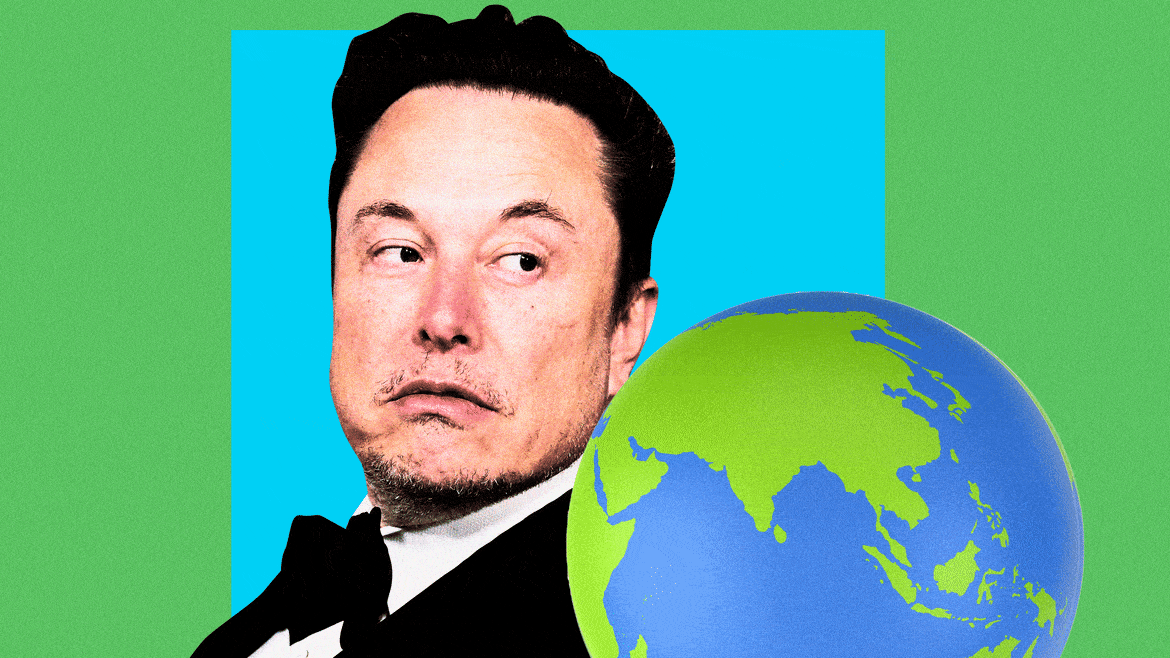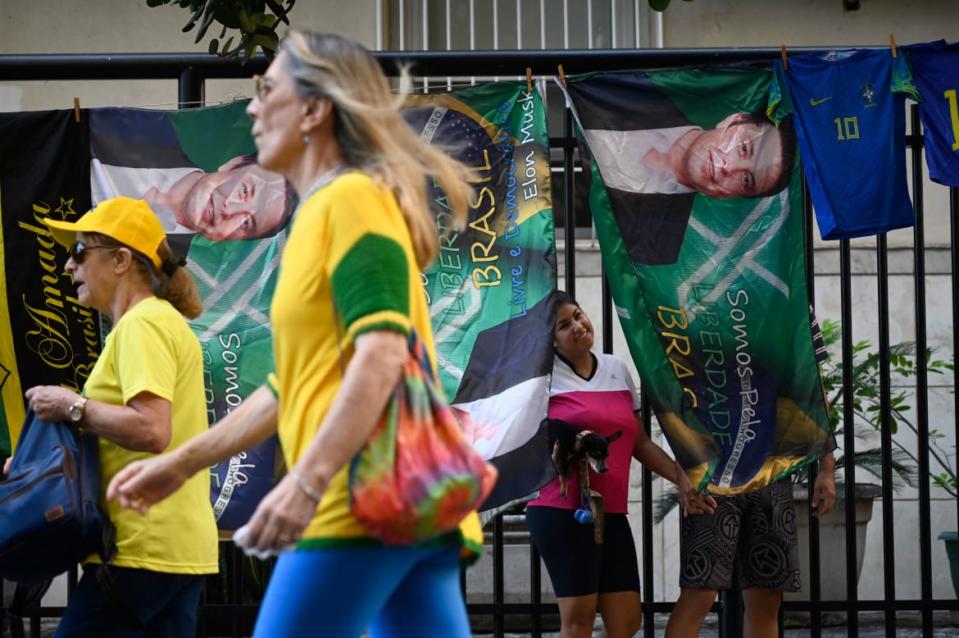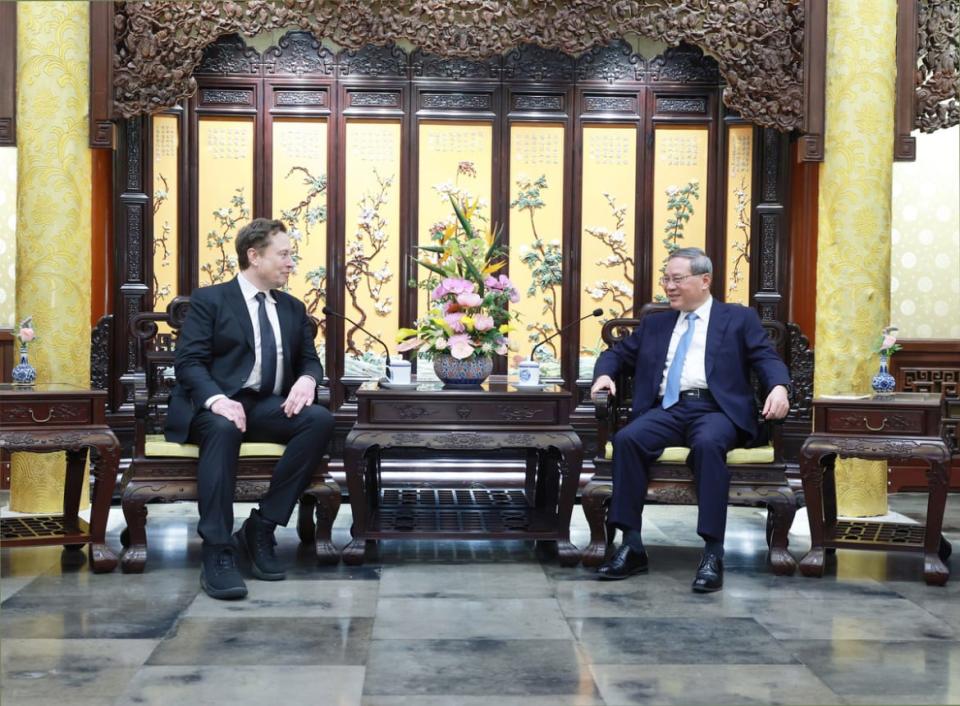The Growing List of Global VIPs Who Detest Elon Musk

Elon Musk is a major player on the global stage, striking business deals, getting high-profile photo ops, and making enemies out of world leaders along the way.
Musk, the billionaire chief executive of Tesla and owner of X (formerly Twitter), jetted off to China earlier this week to meet with Chinese Premier Li Qiang in a bid to get self-driving cars approved in the country. The multi-billionaire went on a walk-and-talk with Qiang, and had a sit-down photo op that was reminiscent of the side-by-side chats that presidents of the United States enjoy with their counterparts.
Honored to meet with Premier Li Qiang.
We have known each other now for many years, since early Shanghai days. pic.twitter.com/JCnv6MbZ6W— Elon Musk (@elonmusk) April 28, 2024
While the surprise visit could yield more praise and approvals for Tesla in China, the world’s largest auto market, not everyone was thrilled with the trip. Musk had previously been scheduled to visit India and announce a $3 billion investment in a car plant, but ended up canceling the trip in favor of going to China.
India’s reaction to the snub has been anything but muted, with some questioning Musk’s opportunistic approach to foreign policy. The Mirror Now news ran a segment calling into question Musk’s moral code and ethos with the tagline: “Shoddy ethics or simply business,” according to Reuters. Digital news service News9 ran another segment that said: “Hello China, Goodbye India?”
That’s not the only international controversy Musk has ignited in recent months: The India affair comes on the heels of major feuds between the Tesla founder and the governments of Brazil, Australia, and Ukraine.
In Australia, the eSafety commissioner ordered Musk’s X to take down tweets that shared videos of a stabbing incident in Sydney in April. X only hid the posts from viewers in Australia, prompting the commissioner to bring a court case seeking an injunction. Musk faces fines upwards of AU$700,000 ($460,000) per day for each day the posts are online since the order was issued. The Australian Prime Minister has since lambasted Musk for being an “arrogant billionaire who thinks he is above the law.”

Supporters of former Brazilian President Jair Bolsonaro walk past flags with a portrait of tech tycoon Elon Musk during a rally.
Musk has also sparked fights in Brazil, where the Tesla founder has been railing against the government for what he says are actions that stifle free speech. Former President Jair Bolsonaro’s online supporters have been at the center of a probe from Supreme Court Justice Alexandre de Moraes for spreading fake news and hate speech. When Musk called a decision by the judge to ban 150 accounts “aggressive censorship” early last month, Moraes shot back, accusing Musk of waging a disinformation campaign against the court.
While this kind of wheeling and dealing on the world stage has catapulted Musk into a unique position of influence, lending him the ears of dictators, despots, and democratic leaders alike, it’s clear that he does not have any kind of overarching foreign policy, former diplomat Rose Jackson—now the director of the Democracy and Tech Initiative at the Atlantic Council’s Digital Forensic Research Lab—told The Daily Beast.
“I wouldn’t call any of this a foreign policy for two different reasons. Number one, he’s not a state. Number two, I don’t think it’s intentional. It’s not focused on any sort of cogent international strategy,” Jackson said. “I think every action can be understood as Elon Musk playing out his own interest in a variety of things. So his fight with Brazil, I think, is much more tied to his seeming affinity for [Jair] Bolsonaro,” referring to Musk’s chummy relationship with the controversial ex-president.
Although his sparring in Brazil, or any number of other countries, might seem misguided or brash, Jackson defended the Tesla founder’s apparent motives in his feud with Australia.
“In Australia, if anything, his response looks a lot more like what we would expect from the prior X, and is fair, actually, I think. It isn’t appropriate for any single country to dictate to the entire world what is and is not accessible on the internet,” Jackson said. “But I don't think you could see that as part of a cohesive narrative.”
Laura Thornton, the senior vice president of democracy at the German Marshall Fund of the United States, warned that Musk’s approach to foreign relations isn’t just erratic, but risky.
“It just looks like chaos. And it’s the kind of chaos that’s dangerous because it’s not just one idiot that runs a big social media company,” she told The Daily Beast. “It’s a billionaire who runs a social media company, and is building SpaceX, and has satellites, and Starlink and has huge defense contracts, and then makes antisemitic comments.”
“To me that’s a very unstable situation,” Thornton said.
Chaos Be Damned
Even so, Musk’s powerful platform and billionaire status loom large in the United States, where he may soon wield his influence in the presidential elections by wading into presidential endorsement. Puck reported that he has been weighing formalizing some of his posts on X into an endorsement, whether against President Joe Biden or for former President Donald Trump.
Colin Kahl, the former Undersecretary of Defense for Policy at the Pentagon, has said that it had become necessary to view Musk as a foreign statesman in order to negotiate with him over the use of Musk’s Starlink in Ukraine, according to The New Yorker.
In the weeks after Russia invaded Ukraine in 2022, for instance, Musk said he thought Ukraine should be “neutral” while Russia invaded the country and tried to take over. The Kremlin showered him with praise as he parroted Moscow’s talking points that Ukraine should just roll over.

Chinese Premier Li Qiang meets with Elon Musk, CEO of Tesla, in Beijing, capital of China, April 28, 2024.
But Musk hasn’t necessarily been a consistent hardliner against Ukraine. Since the early days of the war, Musk has helped Kyiv by providing his Starlink units to Ukraine to help soldiers on the front line fighting Russians. As time wore on, those around him observed that he seemed to grow paranoid that his company was being used to wage war. Eventually, he wiggled his way out of what he perceived to be a tight spot: Musk shared in the fall that he had rejected a request from Ukraine to re-activate Starlink units to help with an attack on Russian forces, drawing ire from Kyiv.
And Musk’s warm relationship with China could yet become more heated as competitors in China are catching up with Tesla, The New York Times reported.
“For a while there's been a strong interest in having a fairly cozy relationship with China because he was manufacturing… there,” Jackson said. “That might change as China does what China does, which is let a foreign company in, compete with it, and then kill it.”
Get the Daily Beast's biggest scoops and scandals delivered right to your inbox. Sign up now.
Stay informed and gain unlimited access to the Daily Beast's unmatched reporting. Subscribe now.

 Yahoo News
Yahoo News 
